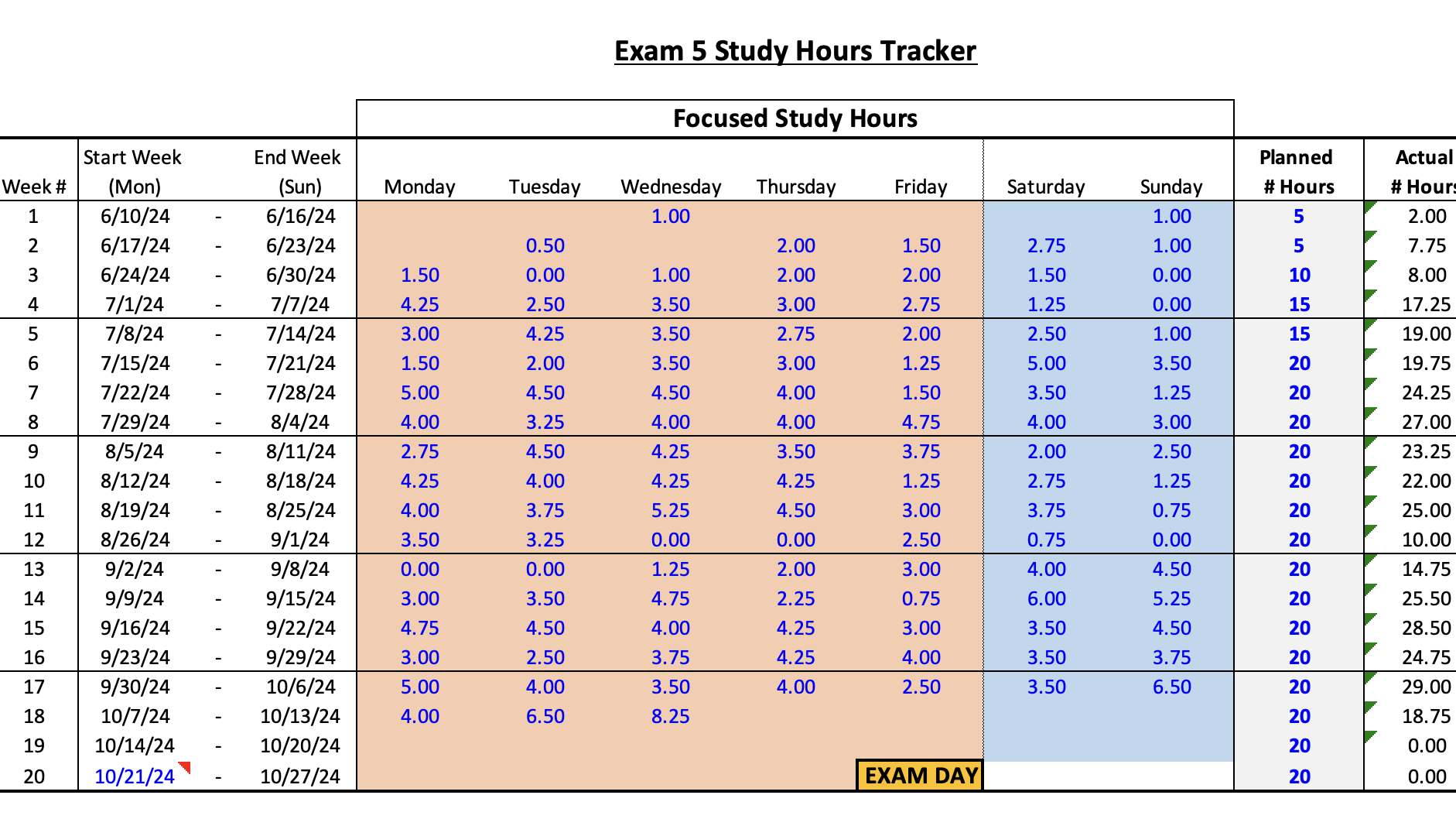When you first start studying for an actuarial exam, particularly the upper-level CAS exams, the enormity of the exam syllabus. By exam day, you likely need to study 300+ hours to set yourself up to pass an upper-level exam. This is a huge task that requires consistent progress over many months.
The problem is that when you start studying, the exam day is so far away that there’s no sense of urgency and little time pressure to sit down today to study. This is why it’s important to track your studying to stay on track.
Leading Metrics vs. Trailing Metrics for Studying
Before discussing how to track your studying, it’s useful to understand the difference between leading metrics and trailing metrics when it comes to studying for and passing exams.
Leading Metrics are input-based and fully within your control. They are actions that will affect whether you pass the exam or not (the outcome). An example of a leading metric is the focused hours studied in a day. This is something you can directly control and adjust according to your study plan. By focusing on this leading metric, you can influence your trailing metrics.
Trailing Metrics, on the other hand, are outcome-based and lagging. They are the results that occur after your actions (leading metrics). Examples of trailing metrics include cumulative hours studied or passing an exam. These metrics are harder to influence directly as they are the result of past actions.
The key to effective study tracking is to focus on leading metrics.
Why You Should Track Your Study Hours
Studying for a CAS actuarial exam is a marathon, not a sprint. It requires consistent effort, focus, and most importantly, effective time management. One of the best ways to manage your time effectively is by tracking your study hours.
Tracking your study hours allows you to:
- Understand Your Study Patterns: By tracking your study hours, you can identify when you are most productive during the week and when you need breaks from studying. This helps you optimize your study schedule to match your natural rhythms.
- Stay Accountable: Having a visual representation of your study hours can motivate you to stay on track. It serves as a constant reminder of your progress and the work you still need to do.
- Measure Progress: Tracking your study hours allows you to measure your progress over time. You can see whether you’re on track to hit your monthly study hour goals so that you’re not scrambling in the final weeks.
How to Track Your Study Hours
When I studied for my final CAS exams, I used a “Study Hours Tracker” Excel spreadsheet to track the focused hours I studied each week. You can download a version of that tracker below and use it for your own studying:

Here’s how to set it up:
- Set your exam date and adjust the dates for each week leading up to the exam.
- Decide on how many weeks to study – 20 weeks is a good target, but anywhere from 16-24 weeks should work depending on your own exam history and work/life schedule
- Set a planned number of study hours for each week from now until the exam
Once the tracker is set up, here’s how to record your study hours:
- Each day, record the number of focused hours you studied in 0.25 hour increments
- Review your progress with the dashboard graphs and the cumulative Surplus / (Deficit) hours compared to plan
- Make adjustments to your plan as needed to “roll with the punches” as they say in boxing (and YNAB) – Life or work may be hectic one week, so you can reduce your planned study hours and add some later on.
The Importance of Focused Study Hours
While tracking study hours is important, it’s equally crucial to ensure that these hours are focused and productive.
Focused study hours are when you are fully engaged in your study material without any distractions, like phones. The more effortful your studying is, the more you will learn the material at a deeper level, which is crucial for passing CAS exams.
Consistent Studying is Key
Remember, the key to passing the CAS actuarial exam is consistent, focused studying. A Study Tracker can be a valuable tool in your exam preparation journey, helping you manage your time effectively and stay on track with your study goals.